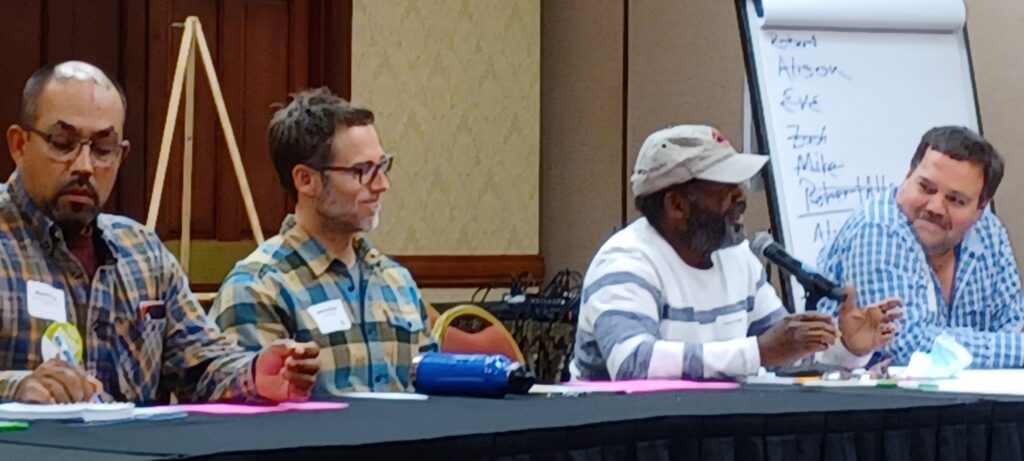
The National Organic Standards Board (NOSB), federal advisory body to the U.S. Secretary of Agriculture on organic issues, convened October 25–27, 2022, in Sacramento, California. The NOSB meeting was preceded by a day-long meeting convened by the National Organic Coalition (NOC) on October 24.
The NOC meeting featured a series of sessions that dove deep into organic issues, including a Q&A with National Organic Program (NOP) Administrator Jenny Tucker, a Washington D.C. update on organic by NOC Policy Director Steve Etka, and a panel, Empowering Immigrant & Limited-Resource Aspiring Farmers in the Organic Movement. This panel featured CCOF Foundation Program Manager Adrian Fischer and other allies, including Chris Brown of the Agriculture and Land-Based Training Association (ALBA), Leonard Diggs of Pie Ranch, and an immigrant farmer, Mauricio Soto, from Washington state
.
Throughout both meetings, it was clear that people were thrilled to be meeting face-to-face again. NOSB met virtually during the pandemic, and this was the first time since fall 2019 that they met in person.
The NOSB meeting featured collegial and at times emotional presentations by board members, led by chair Nate Powell-Palm. Public comment was restricted to online webinars held the week before. Audience members watched the board’s proceedings, which were also broadcast over the internet.
NOSB members had a range of issues on their agenda, including certification policies and sunset review of materials on the National List. Among other actions, the NOSB passed a motion that requires certifiers to list an operation’s harvested acres by crop type and total certified acres on organic certificates. Helping support hardworking small and mid-scale farmers while they serve on NOSB is an ongoing discussion.
The board expressed consensus that organic is climate-smart agriculture. NOSB is expected to release a proposal on the topic at its spring 2023 meeting, which will be held in Atlanta, Georgia.
There was general agreement on motions to remove sunset materials from the National List and none of them passed, with the result that all materials under consideration were kept on. The most controversial material was bio-based, biodegradable mulches, which narrowly avoided removal from the National List. NOSB approved a petition to add CO2 as a crop material for the purpose of cleaning irrigation lines.
A summary of all NOSB decisions will be posted on the October 2022 meeting page.
This was the second meeting for NOSB member and CCOF-certified organic farmer Javier Zamora and the final meeting for CCOF-certified organic farmer Rick Greenwood, who had served on the Environmental Protection and Resource Conservation seat since 2018.
